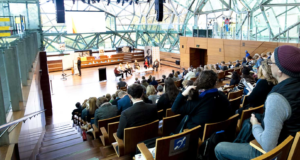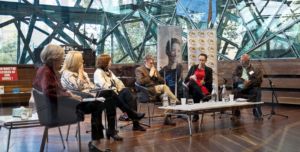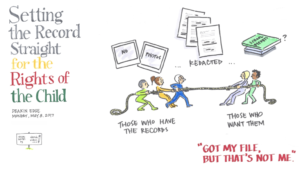On this page, I will point to authoritative statements about records and out-of-Home Care.
CLAN’s Charter of Rights to Records
This was first written in 2016 and has been reviewed more than once. It is worth looking at this as a unique perspective on records for Care Leavers. It is intended that CLAN’s Charter should be totally compatible with a national Lifetime Living Charter to Rights in Records which has been the subject of extensive work by project teams at Monash and Federation University with strong impact from CLAN and other stakeholders. Watch this space!
♣♣♣
The Royal Commission on Records
Royal Commission on Institutional Responses to Child Sexual Abuse (2017). Final Report Vol. 8, Recordkeeping and Information Sharing
The Royal Commission’s recommendations included a set of principles that should be implemented by all institutions that engage in child-related work. Principles 1-4 are summarised below.
Principle 1: Creating and keeping full and accurate records relevant to child safety and wellbeing, including child sexual abuse, should be an integral part of institutional leadership, governance and culture.
Principle 2: Full and accurate records should be created about all incidents, responses and decisions affecting child safety and wellbeing.
Principle 3: Records relevant to child safety and wellbeing, including child sexual abuse, should be maintained in an indexed, logical and secure manner.
Principle 4: Records relevant to child safety and wellbeing, including child sexual abuse, should only be disposed of in accordance with law or policy.
Of most interest to Care Leavers is Principle 5 which reads:
Individuals’ existing rights to access, amend or annotate records about themselves should be recognised to the fullest extent. Individuals whose childhoods are documented in institutional records should have a right to access records made about them. Full access should be given unless contrary to law. Specific, not generic, explanations should be provided in any case where a record, or part of a record, is withheld or redacted. Individuals should be made aware of, and assisted to assert, their existing rights to request that records containing their personal information be amended or annotated, and to seek review or appeal of decisions refusing access, amendment or annotation.
The Australian government and every state and territory government and most of the major organisations have accepted these 5 Principles “in principle”. However, it is already clear that some will need a lot of pushing to change their practices to live up to their commitments.
♣♣♣
Commonwealth National Principles and Guidelines for Care Leaver Records
Australian Department of Social Services (2015). ‘Access to Records by Forgotten Australians and Former Child Migrants: Access Principles for Records Holders and Best Practice Guidelines in providing access to records’.
This Australian government publication has been endorsed by most if not all State governments in one form or another – although some agencies still have not caught up in practice!
The introductory summary states:
The Principles and Guidelines address three recommendations made by the Senate report, Forgotten Australians: A report on Australians who experienced institutional or out-of-home care as children August 2004 (Senate Inquiry), in particular:
- supporting government and non-government agencies to agree on how care leavers, upon proof of identity only, can view all information relating to themselves and receive a full copy of such documents
- records being provided free of charge, and
- compassionate interpretation of legislation to allow information to be released to enable care leavers to identify their family and background.
You can download the Principles and Guidelines here.
♣♣♣
The National Summit on Rights in Records – Setting the Record Straight
The National Guidelines (above), the work of the Royal Commission (above) and other events such as a forum of the Australian Society of Archivists (See uTube version here) stimulated a National Summit held in Melbourne in May 2017. It was a collaborative effort between, Monash, Federation and Melbourne Universities and community organisations like CLAN, Connecting Home, Child Migrant Trust, and CREATE.
You can learn more about the Summit here and in Joanne Evans’ article:
Joanne Evans (2017): Setting the Record Straight for the Rights of the Child Summit, Archives and Manuscripts, DOI: 10.1080/01576895.2017.1373244 http://dx.doi.org/10.1080/01576895.2017.1373244


